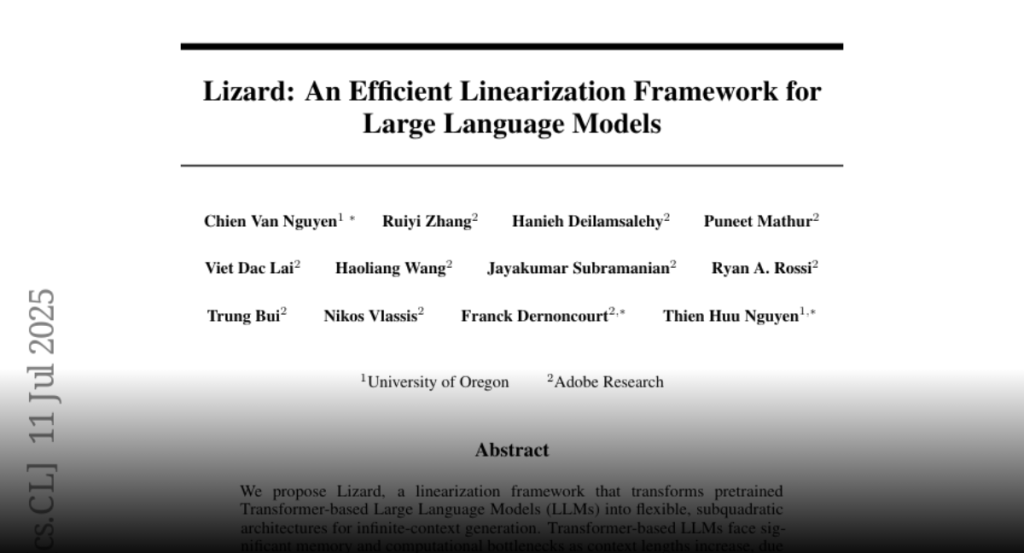Lizard is a linearization framework that transforms Transformer-based LLMs into subquadratic architectures for efficient infinite-context generation, using a hybrid attention mechanism and hardware-aware training.
We propose Lizard, a linearization framework that transforms pretrained
Transformer-based Large Language Models (LLMs) into flexible, subquadratic
architectures for infinite-context generation. Transformer-based LLMs face
significant memory and computational bottlenecks as context lengths increase,
due to the quadratic complexity of softmax attention and the growing key-value
(KV) cache. Lizard addresses these limitations by introducing a subquadratic
attention mechanism that closely approximates softmax attention while
preserving the output quality. Unlike previous linearization methods, which are
often limited by fixed model structures and therefore exclude gating
mechanisms, Lizard incorporates a gating module inspired by recent
state-of-the-art linear models. This enables adaptive memory control, supports
constant-memory inference, offers strong length generalization, and allows more
flexible model design. Lizard combines gated linear attention for global
context compression with sliding window attention enhanced by meta memory,
forming a hybrid mechanism that captures both long-range dependencies and
fine-grained local interactions. Moreover, we introduce a hardware-aware
algorithm that accelerates the training speed of our models. Extensive
experiments show that Lizard achieves near-lossless recovery of the teacher
model’s performance across standard language modeling tasks, while
significantly outperforming previous linearization methods. On the 5-shot MMLU
benchmark, Lizard improves over prior models by 18 points and shows significant
improvements on associative recall tasks.

